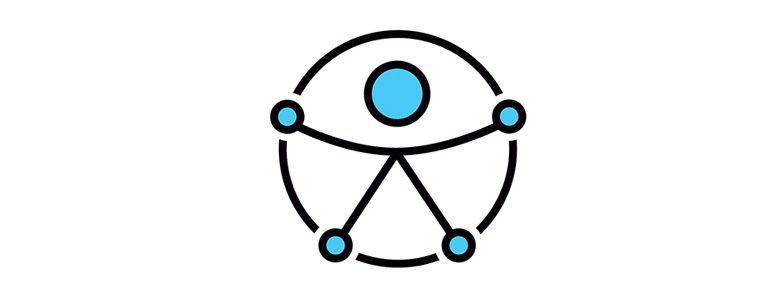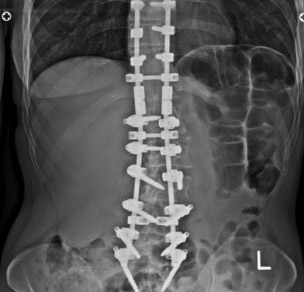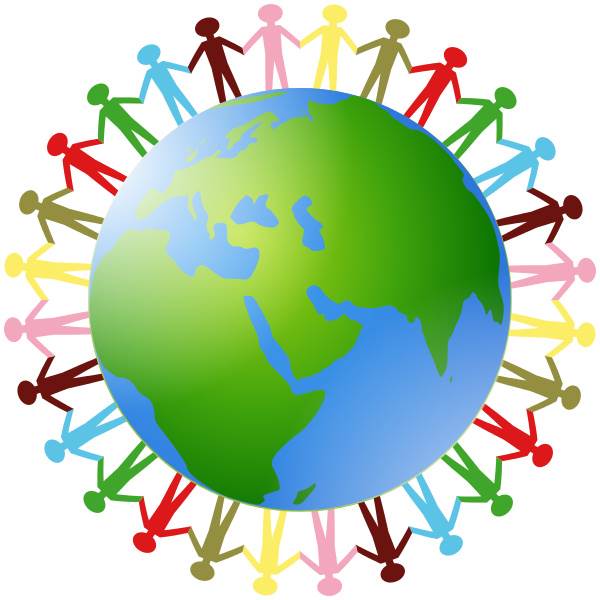
For the Billion: help make a difference to disabled people’s lives – including your own
Disability Horizons co-founder Martyn Sibley talks to us about new campaign For the Billion. It’s estimated that there are 1 billion disabled people in the world, and a lot of what enables them to live a normal and fulfilling life is our society being accessible and accepting. But, all too often it’s inaccessible and intolerant.
For the Billion aims to start addressing some of these issues by raising awareness of problems in our society, as well as what disabled people are capable of, and making a noise about it. Read on to see how you can help improve disabled people’s lives – as well as your own.
My personal story
It was June 1999. There were wires and tubes coming out of my body everywhere. I was hallucinating. I was sure the nurse was actually my Irish grandma, who had passed away nearly 10 years before. Worst of all, I was violently sick every hour, for days.
I’d never been in hospital for longer than a night. The Intensive Care Unit at Stanmore hospital was a very scary place. Not because of the people or the decor. But because I was in unfamiliar territory.
I was in between two major operations. The first had been to remove my growth plates from my spine, deflating my lung to get to them! I, therefore, had to have a chest drain in. The sickness was all due to a bad reaction to the anaesthetic. The hallucinations were from the morphine pain relief. The nurse was Irish, but not a relation.
It had taken 6 hours to complete stage one.
The second operation was a week later. They thankfully used a different anaesthetic. This was a longer procedure where they fixed two titanium rods to my spine using all sorts of nuts and bolts. It was to correct the scoliosis curvature I had been suffering from for years.
Stage two took 8 hours! I woke up the next day with a tracheostomy (a big tube down my windpipe), plus a whole lot of pain…

Why was this moment so significant?
Once I’d stabilised enough to come off the hallucinogens and tracheostomy, my brain went into panic overdrive.
What if they made a mistake? What if this pain never went away? What if I never got out of hospital? What if I couldn’t sit up again? What if I had lost my already minimal arm strength?
I’d love to tell you it was all easy thereafter. It wasn’t. Every day was a battle. A year later, aged 16, I had gone down to 4 1/2 stone in weight! With no energy for school work. Plus I was having anxiety attacks out in public.
A year later, aged 16, I had gone down to 4 1/2 stone in weight! I had no energy for school work, plus was having anxiety attacks out in public.
Day by day, week by week, month by month, it gradually got better. In the long run, I actually think it was the making of me! It taught me lessons on patience, perseverance, positive thinking, hope, not giving up, celebrating the little victories, and that all things (bad and good) do pass.
Naturally, I hit other barriers through my life afterwards. But they were far less medical, less painful, and less severe.
Most of all, because I’d survived and learned so much from this experience, it made leaving home, driving an adapted car, getting a Bachelor’s and Master’s degree, living independently with carers, travelling the world (doing activities like skiing, sailing, and flying a plane), and running multiple businesses EASY!
Well… easier.

The Billion People problem
Having a happy life with Spinal Muscular Atrophy, needing a wheelchair, and relying on carers mostly hinges on societal barriers.
- When a pub has steps, I’m disabled. When there’s wheelchair access, I’m Martyn.
- When the bus driver can’t be bothered to help get the ramp for me, I’m disabled. When they assist me with the ramp, I’m Martyn.
- When a prospective employer sees my wheelchair, and not my talent. Yep you guessed it, I’m disabled. When they remove any barriers from the interview process, I’m Martyn.
Whether someone uses a wheelchair, has difficulty walking, has a visual or hearing impairment, is autistic, has Down’s Syndrome, or any other long-term health condition, they are considered disabled under the Equalities Act 2010. That’s to say no unreasonable barriers should disable them.
Here are some shocking stats:
Disabled people are more than twice as likely to be unemployed as non-disabled people.
Life costs you £550 more on average a month if you’re disabled.
Disabled people are twice as likely to be physically inactive (43%) than non-disabled people (21%).
Those who aren’t so familiar with disability presume it affects a tiny minority of people. They think things are all ok now, or at least that others are dealing with it. They think it doesn’t concern them.
Did you know there are approximately 13 million disabled people in the UK? Furthermore, that there are an estimated 1 billion disabled people in the world?!

Even with accessible environments, inclusive customer service, and fair organisational procedures, there are two more factors we still need to address.
1) How disabled people gain resilience.
Resilience not only to survive medical procedures and social oppression, but to thrive in life. Thrive with our health, independence, finances, work and leisure. There has to be more to life than just hospital visits, managing carers, and fighting for wheelchair funding.
2) Disability hate crime is on the rise.
We need everyday people to not fear us, but to embrace diversity. ‘Difference’ is a good thing. So let’s promote more tolerance and compassion for all.
Everybody has a responsibility
Not only is 1 billion a vast number of people still being oppressed by barriers, but many of these people become disabled in later life. This shows us that everybody should be interested in making a change for their own wellbeing, as well as for their friends, family and beyond.
On a societal level, it’s said the spending power of disabled people is £249 billion. Even in tourism is around £12 billion is available for businesses wanting to make inclusion a win, win.
The solution – For the Billion
So we agree – 1 billion people is a lot of humans!
I’m just one guy who raises awareness on these issues. Since graduating from university and working in the disability space, it’s been estimated that I’ve run projects impacting more than 1 million disabled people, recently resulting in my being voted Britain’s third most influential disabled person.
It’s been tough, with many potholes along the way. But I’ve loved every minute of it. From my time at a national disability charity, blogging on martynsibley.com and founding Disability Horizons (available in 5 languages) to my book (Everything is Possible), my podcast, my talks as a motivational speaker, and my client work for governments, businesses and charities.
It’s all been fantastic.
It’s naturally, in many cases, been a team effort. A community effort. We’ve made so much progress together. We have a tsunami of change. And by no means are we done. We’re ready to crank it up another gear.
As of today, we’re launching #ForTheBillion. It’s a new project to address the above issues.
This is all because of my experience back in those dark days at Stanmore hospital. I want anyone in a similar boat to have a helping hand. To learn from those who’ve sailed those stormy seas. Plus, I wish for the world to have no more barriers. Both reasonable and unreasonable.
The projects aims are to:
- raise awareness of the issues facing the 1 billion disabled people on earth;
- give disabled people the tools for personal achievement, and show them how to help others;
- support organisations and professionals to empower disabled people (not dictate to them).
How can I/we help?
If you’re disabled
If you are disabled, struggling with any part of life, and looking for answers, or just want to be part of a community that wants change – please sign up to the Disability Horizons newsletter here.
Not only will you get our amazing Disability Horizons articles, but you’ll be the first to hear about our upcoming opportunities. Opportunities for personal growth and community contribution.
In addition, the more disabled people we have on board, the more noise we can make when it comes to addressing issues and changing attitudes.
If you’re from an organisation
If you are from an organisation supporting disabled people, please sign up to the above newsletter too. Feel free to share our upcoming opportunities with your service users.
If you’re from a business that wants to be more inclusive
If you are an organisation or business seeking help with inclusive employment, projects, goods and services, please contact me here. We’ll then share our ideas on addressing your needs. Whether that’s with us or with our partners.
If you would like to support the campaign by sponsoring any of our digital content, digital events, coaching programmes, or offline events, run by me or Disability Horizons, please contact me here. We’ll then send you Disability Horizons’ media pack showcasing the options available. Without funding, we can’t make as much impact.
Change is already happening
Disability Horizons and my projects have been building momentum for more than 5 years now. Together, with you, we’re already changing the world. However, we need more disabled people to join our movement and we need more resources. With these, we can create a bigger impact for the 1 billion disabled people.
Are you ready to help us kick ass?!
By Martyn Sibley
Get in touch by messaging us on Facebook, tweeting us @DHorizons, emailing us at editor@disabilityhorizons.com or leaving your comments below.
https://disabilityhorizonscom.onyx-sites.io/2017/04/how-to-be-a-kick-ass-disabled-person/
https://disabilityhorizonscom.onyx-sites.io/2017/08/three-disabled-people-who-will-not-let-themselves-be-limited/
One Comment